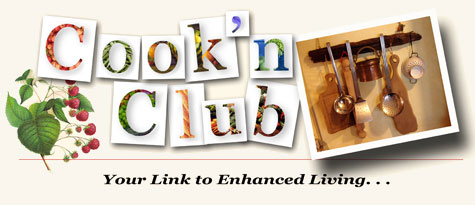Save Money - Think Grocery Co-Ops!
By Alice Osborne
 One of my very favorite websites, SustainableTable.org, has a wealth of information about grocery co-ops - a terrific way to save on your grocery bill and often enjoy fresher food. Every day, more and more consumers are shopping smarter, eating healthier, and enjoying an abundance of fresh, locally-grown products by going through grocery co-ops. The Sustainable Table website was created to celebrate this fast-growing, dynamic movement, to educate consumers on food-related issues, and to help build community through food.
One of my very favorite websites, SustainableTable.org, has a wealth of information about grocery co-ops - a terrific way to save on your grocery bill and often enjoy fresher food. Every day, more and more consumers are shopping smarter, eating healthier, and enjoying an abundance of fresh, locally-grown products by going through grocery co-ops. The Sustainable Table website was created to celebrate this fast-growing, dynamic movement, to educate consumers on food-related issues, and to help build community through food.
 And when they talk about food-related issues, they're talking about how today's dominant form of agriculture relies on synthetic fertilizers and chemical pesticides, large amounts of water, major transportation systems and factory-style practices for raising livestock and crops. Artificial hormones in milk, antibiotic-resistant bacteria, mad cow disease, and large-scale outbreaks of potentially deadly e.coli are all associated with this industrial form of food production.
And when they talk about food-related issues, they're talking about how today's dominant form of agriculture relies on synthetic fertilizers and chemical pesticides, large amounts of water, major transportation systems and factory-style practices for raising livestock and crops. Artificial hormones in milk, antibiotic-resistant bacteria, mad cow disease, and large-scale outbreaks of potentially deadly e.coli are all associated with this industrial form of food production.
 Sustainable agriculture involves food production methods that are healthy, do not harm the environment, respect workers, are humane to animals, provide fair wages to farmers, and support farming communities.
Sustainable agriculture involves food production methods that are healthy, do not harm the environment, respect workers, are humane to animals, provide fair wages to farmers, and support farming communities.
But what I really love about Sustainable Table is that rather than focus on the problems, Sustainable Table promotes the positive shift toward local, small-scale sustainable farming. They do this by promoting these small-scale farms and their products.
So have you heard of co-ops? Do you already participate in one? If not, here's the scoop on exactly what they are and how to get started:
 A co-op is a group of people or organizations that come together for each person or group's mutual benefit. Co-ops are owned by members and are democratically structured, meaning one member, one vote. Co-ops share certain characteristics, including:
A co-op is a group of people or organizations that come together for each person or group's mutual benefit. Co-ops are owned by members and are democratically structured, meaning one member, one vote. Co-ops share certain characteristics, including:
• They are all democratic, volunteer associations.
• They are created to benefit everyone and are, in fact, a business.
• The only owners are the members of the co-op.
• They do not work to make a profit. Any extra money is shared among the member/owners.
There are generally two types of food cooperatives - co-operative grocery stores and co-operative buying clubs.
Let's look at co-operative grocery stores first:
 Food co-operatives, often simply called co-ops, are voluntary organizations owned and controlled by members to provide low cost, healthy food primarily to members of the co-op, though some also sell to the non-member public.
Food co-operatives, often simply called co-ops, are voluntary organizations owned and controlled by members to provide low cost, healthy food primarily to members of the co-op, though some also sell to the non-member public.
Food co-ops are operated for members by members at a non-profit or cost basis. Individuals who belong to the co-op have a say in decision-making over issues surrounding the organization.
Most food from co-ops is organic, though some is "natural" -- produced with a minimum of processing with little or no additives or preservatives.
To find a co-op in your area, visit the By-State Co-Op Directory or check out this Local Harvest Food Co-Ops link.
 Now for Food buying clubs. They are simply a group of people who come together to buy food in bulk, thus getting discounts for members of the club.
Now for Food buying clubs. They are simply a group of people who come together to buy food in bulk, thus getting discounts for members of the club.
They are usually an informal organization of friends, members of church groups, neighborhood groups, etc, who share the chores of collecting money from the member families, placing the order with the distributor, helping unload the truck when it arrives at the drop-off site, and dividing up the individual orders.
Food is generally purchased through a natural foods regional distributor or a food co-op warehouse. Regional distributors provide food for both buying clubs and co-op stores.
When my 7 children were home, I belonged to a food buying club headed up by our good friend, Karen Dayley. We saved a lot of money through her resourcefulness and it was great fun getting together on "pick up days" to divvy up our purchases.
Both approaches to gathering in your groceries are good, but if you don't have a food co-op nearby, then organizing a food-buying club might be the answer for you. Either way, it's a smart way to save money and live a more sustainable lifestyle. It's win-win for all involved!

